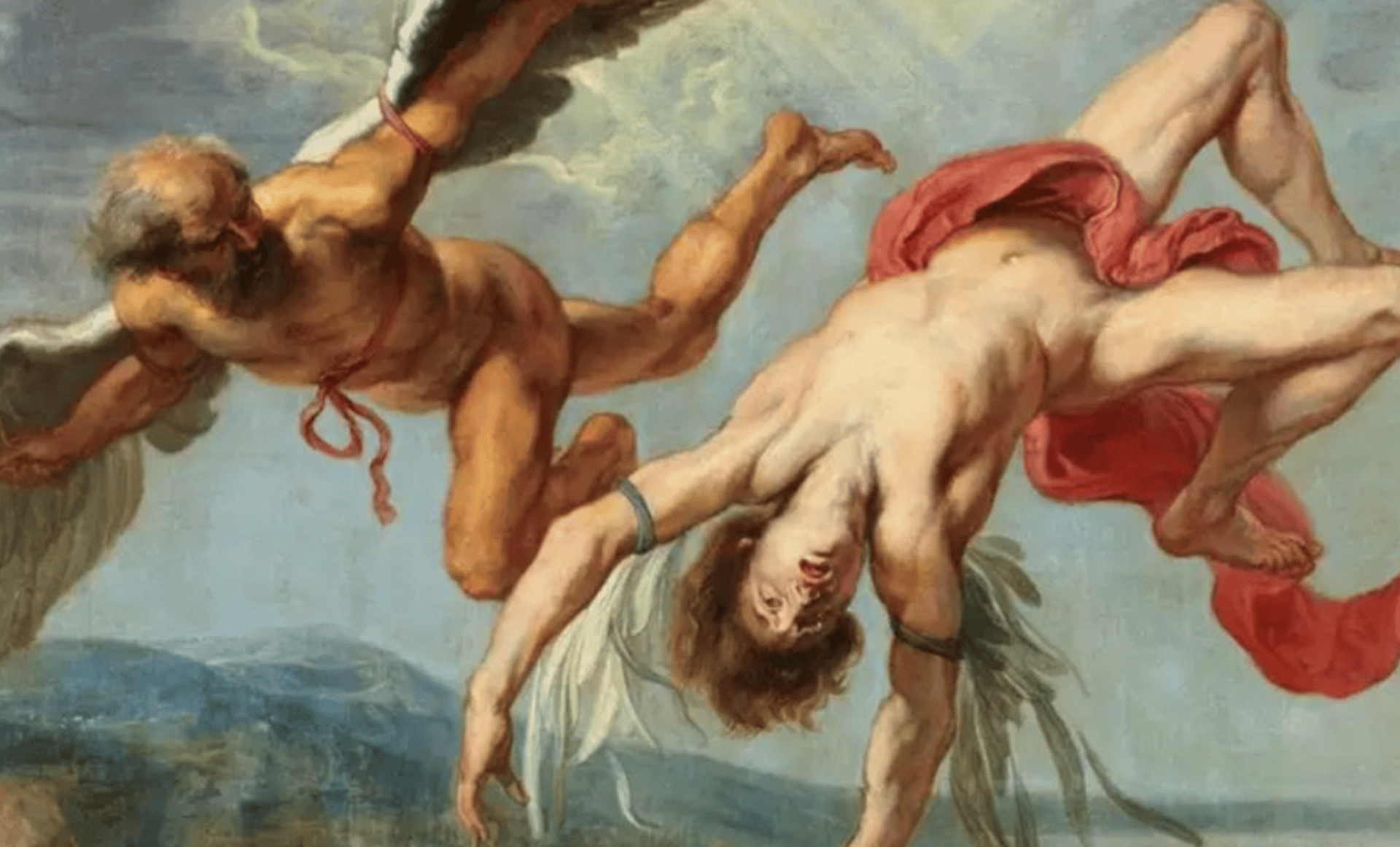
Transgressions (Part II)
A hero's tragic fall
CONTEMPLATION
Author’s note: This contemplation is part two of three. If you haven't read the first part, I highly recommend checking it out before continuing here. Click here to read part one.
In our ongoing quest to figure out why we sin, we must first discover what the word "sin" even means. There is likely no better place to find an answer than in the ancient world:
The theater erupts.
Mighty Ajax stands center stage.
His shield is too heavy for the common soldier to carry, his spear too long. His gaze is lifted skyward. The veins in his neck bulge as he roars in anger.
“Odysseus?!?!,” he bellows, enraged, “You think him a greater warrior than I?! That coward is nothing but a heap of schemes and lies.”
Odysseus sits far off to the left. The armor of the hero Achilles rests at his feet. He, cunning Odysseus, has been called the greatest warrior of the Greeks following the death of Achilles. With that title, the armor, smithed by Hephaistos himself, was bestowed upon him.
Ajax’s ego had taken a blow it could not bear. His Achilles heel, his fatal flaw, had been revealed and exploited: his pride.
His pride had been hurt, and he is unable to cope with it.
He descends into madness, killing hundreds in vengeance. Then, overcome by grief and guilt from the blood on his hands, he promises to bury his sword forever, but it is in his chest that he buries it.
The theater gasps as Ajax meets his end in a fashion suitable for a Homeric hero.
With that, the ancient tragedy “Ajax” by the renowned playwright Sophocles concludes.
I imagine, as the ancient theater lover leaves the auditorium, one question would continuously permeate his mind:
What had caused Ajax’s downfall?
Or, perhaps, if we could hear the viewer's inner voice, the question would be this:
What was Ajax’s ἁμαρτia (hamartia)?
Hamartia … that is the Greek word used by ancient playwrights.
The philosopher Aristotle elaborates on the meaning of this term.
It seems to express itself in three distinctly different ways...
First, hamartia is missing the mark. It is failure to act in the manner to which one aspires. It is to have action deviate from intention.
Second, hamartia is an error based not on lack of moral principles, but on oversight. It does not reflect a person's moral decisions but is instead an expression of their imperfection – their humanness.
Third, hamartia constitutes a character flaw such as selfish greed or boisterous pride. This flaw is internal. It is revealed through circumstances that exploit the flaw. It becomes evident through the character's actions, and then it creates real-world implications and consequences.
In all three cases, hamartia is the cause of the hero’s downfall in the ancient theater. It is the moment that felicity and bliss spiral into disaster.
For our hero Ajax in Sophocles’ play, this hamartia is pride.
It is his pride that leads to his destruction, downfall, and eventual demise.
And this word hamartia, this deviation from intention, this human imperfection, this character flaw that marks the onset of carnage and chaos and ends in a tragedy … this is the word that is used in the Greek New Testament, which we translate into English as “sin.”
I wonder if the ancient reader of scripture was reminded of Ajax’s pride when he read about sin.
I wonder if he was aware of the tragic pit of despair into which sin hurls one.
And I wonder if he thought about how sin led those heroes – Ajax, Icarus, Agamemnon, all of them – to one end: despair and death. And I wonder if he realized that the death of Christ offered redemption from this vicious cycle of hamartia.
Author’s note: It is worth noting that upon further research, the use and understanding of the Greek “hamartia” strongly correlates with the Old Testament Hebrew word for sin: CHATA.
Click here for “Transgressions (Part III) – Our fight for survival.”

Source: Wikimedia Commons
